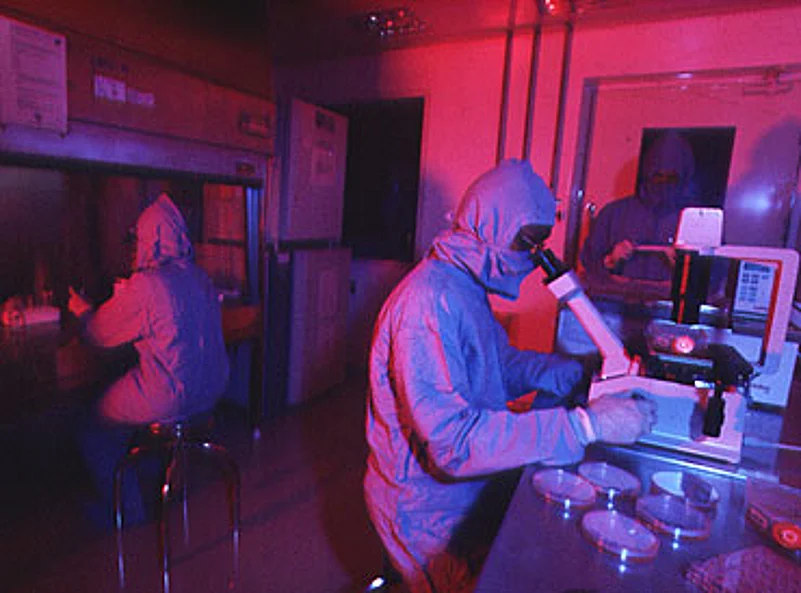- Blood pressure
- Body mass index
- Blood sugar level
- Cholesterol
- Low-density lipoproteins
- High-density lipoproteins
- Triglycerides
- Haemoglobin
- Kidney and liver function tests
- Vitamin content
- Prostate-specific antigens
(In all, there are 272 parameters)
***

The pilot project is expected to identify and deal with possible bottlenecks in what will be a colossal, complex exercise. Notes Partha Majumder, member of the INCLAP taskforce and a population geneticist at Calcutta's Indian Statistical Institute: "We would like to push ourselves to the extreme in collecting samples from remote corners, transporting them on time to the laboratory and estimating the clinical laboratory parameters." The pilot project will also gauge the preparedness for the larger study, expected to cost around Rs 500 crore and last anywhere between 5 and 10 years. The final sample size is likely to run into several hundred thousand individuals.
While INCLAP will be the first definite and comprehensive reassessment, there have been isolated studies to show how western values for certain parameters do not apply to Indians. One such study was conducted by T. Malati of the Hyderabad-based Nizam's Institute of Medical Sciences, where she heads the biochemistry department. After studying a sample size of 580 Indian men, she found the cutoff mark for prostate-specific antigens (PSA), which determine the likelihood of prostate cancer, was half (2 nanogram/ml of blood) of the western one (4 nanogram/ml). PSA is one of the screening tests for possible onset of prostate cancer. "This implies a lot of Indians being tested for PSA are not being alerted on time to enable them to go for early check-ups," she says.
Similarly, an ongoing study by Malati hints that the level of cholesterol required to precipitate strokes and cardiac arrests in Indians is much lower than in the west. "Today, Indian labs consider anything between 150 to 200 mg/dL as acceptable but my study indicates those between 175 and 200 mg/dL have a borderline risk of heart or stroke-related ailments." It has also been found that CD4 and CD8 counts, which determine how advanced an hiv infection may be, is "much lower" in Indians than in western populations. Average haemoglobin content in Indians is also two notches lower than western recommended levels for males (15 g/dL) and females (12 g/dL).
To give one an idea of the project's likely impact, INCLAP will even decide whether or not a person is diabetic. At present, individuals with glucose content higher than 126 mg/dL in their blood are normally labelled diabetic. "But diabetes goes beyond just the level of blood glucose," argues Majumder. "It has a host of other concomitant problems like fatigue, frequent urination, weight loss and delay in wound healing. If a person with blood glucose higher than 126 mg/dL can continue with his or her daily chores without any of these problems, it may be crucial to reassess whether to declare the person a diabetic," he says. INCLAP, thus, may arrive at a fresh threshold for blood sugar in various Indian populations.
Given the enormous stakes involved, K. Srinath Reddy, president of Public Health Foundation of India, argues the final values should be determined after taking samples from people over a period of time and not just once. "What's normal pathologically may not be normal physiologically," he warns. But Bhargava feels that is "virtually impossible" going by the complexity and magnitude of the project. Nonetheless, he says, INCLAP'S effort will be to arrive at as many credible figures as possible.






















